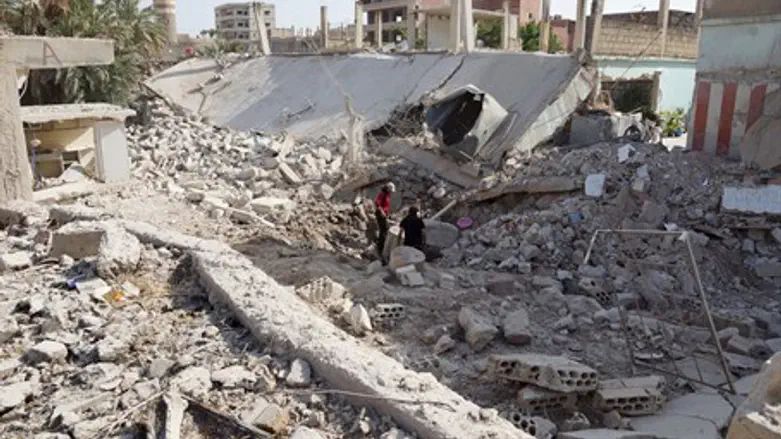
Britain, France and Spain will soon present a draft resolution to the UN Security Council on stopping the Syrian regime from using barrel bombs, the French envoy said Thursday, according to AFP.
But it remains highly unlikely that Russia, Syria's ally, would support such a measure, which comes amid fierce Western criticism of Moscow's air war in Syria.
French Ambassador Francois Delattre told the 14-member council that barrel bombs were a "weapon of terror" that was fueling the exodus of refugees to neighboring countries and to Europe.
"It is the immediate responsibility of the Security Council to take measures to effectively end the use of this terrible weapon in Syria," said Delattre.
"France, acting with Britain and Spain, will soon make concrete proposals to its partners to this end," he added.
A diplomat told AFP that a draft resolution will be presented to the council "before the end of the month."
President Bashar Al-Assad’s troops have consistently used barrel bombs in their attacks on rebel-held areas of Syria.
Barrel bombs are crude weapons -- containers packed with explosives and scrap metal that are typically dropped from helicopters.
Human rights groups say barrel bombings by the regime are the number one killer in the four-year war, claiming more civilian lives than Islamic State (ISIS) attacks.
In September alone, the Assad regime dropped 1,715 barrel bombs, hitting mosques, hospitals, schools and other civilian sites, American Ambassador Samantha Power said, citing the Syrian Network for Human Rights.
Power said the Russian campaign had "worsened an already dire situation" and that the conflict "will not end until Syria is free of Assad."
Assad, however, has repeatedly denied using barrel bombs and has claimed in interviews that no such weaponry exists.
More than 240,000 people have died in the Syrian conflict, and nearly 12 million people -- half of the country's population -- have been driven from their homes.
The council adopted a resolution in February 2014 demanding an end to the bombings, but there has been no action to enforce the measure by the council, where veto-wielding Russia has in the past blocked resolutions targeting Assad.
